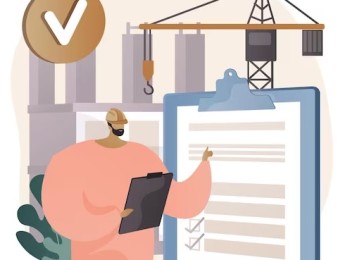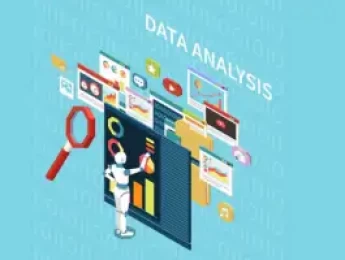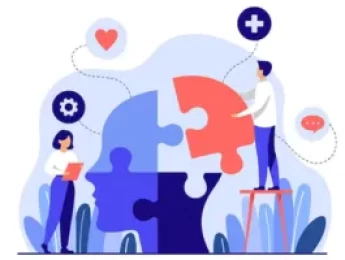The Internet of Things is a relatively new term, and while often used, it is rarely understood. Regarding the future of the oil and gas industry, the Internet of Things will clearly feature heavily in reshaping the future landscape of operations in the field. It creates efficiencies and helps companies work smarter, meaning that upscaling and growth become a realistic possibility.
In this course, delegates will explore and understand the Internet of Things and all of the terminologies that accompany it. One such term is the Industrial Internet of Things, and leaders and professionals within the gas and oil industry must understand these things. The benefits that the IoT offers will enable challenges that have so far been unresolved to be addressed and rectified. Technology is the future, so developing these valuable digital skills will help career development and progression. You can become a technical expert and assist your company as it cultivates its new culture, including digital transformation's sustainability.
Upon completion of this course, participants will be able to:
- Demonstrate a complete understanding of IoT
- Understand non-human actions and communications
- Describe data creation from a non-human source
- To be confident about how IoT impacts the gas and oil industry
- Work with mapping IoT elements
- Use design models using logical information control
- To be confident with cloud computing and using elastic cloud
- Recognise the impact of increasing connectivity
- Construct an Industrial Internet of Things model
- Understand IIoT and optimise your design
This course is intended for
- Oil and gas industry professionals interested in innovative technology
- Oil and gas industry professionals involved in the adoption of IoT technologies within their companies
- Oil and gas industry technical professional
- Oil and gas leaders from business and government
- Leaders and professionals dealing with energy resources
- Educators of engineering and digital developments
- Researchers working in digitalisation related to engineering
- Anyone looking to upskill for career progression in the gas and oil industry
Teaching takes place in various settings, including face-to-face classroom teaching. It will ensure that participants can expand their knowledge of the subject and increase their skill set. The course is delivered via various methods by a specialist tutor. This will include PowerPoint presentations, reviewing articles and other relevant materials, group or individual exercises and discussions. There may be some independent work set, and the course will require submitting articles to demonstrate understanding and an end-of-course test. Note-taking is encouraged, and you are welcome to use electronic devices.
The course manual will form part of the learning but will give you references for the future. You are encouraged to ask questions and, if needed, spend time one-on-one with your tutor to review any issues. You can network with peers in similar roles during your time in the classroom.
Day 5 of each course is reserved for a Q&A session, which may occur off-site. For 10-day courses, this also applies to day 10
SECTION 1: What is the Internet of Things?
- An overview of the Internet of Things (IoT) Technology
- IoT current trends
- The Architectural Context of IoT
- How Cloud Computing Impacts Operational Strategies
- Understanding how machine-to-machine communication
- Why do digitally transformed companies have to increase transparency and traceability?
SECTION 2: IoT Within the Gas and Oil Industry
- Gas and oil industry opportunities for operational technology
- IT/OT convergence: integration of IT with operational technology systems
- What are the implications of the Internet of Things?
- What is a completely automated enterprise, and how is it evolving?
- What behavioural aspects and organisational changes are needed
- How do we achieve excellence when a company has been digitally transformed?
SECTION 3: IoT Technologies and Data Analytics in Oil & Gas
- Sensors and Data Collection : Types of sensors used in oil and gas for data collection.
- Big Data and IoT Analytics : How big data analytics enhances decision-making and predictive maintenance.
- Data Management Challenges : Handling large volumes of data and ensuring data integrity.
- Cybersecurity in IoT Systems : Protecting IoT devices and data against oil and gas sector cyber threats.
- AI and Machine Learning Applications : The role of AI/ML in enhancing IoT-driven insights.
SECTION 4: IoT for Asset Management and Maintenance
- Real-Time Asset Monitoring : Using IoT to track equipment health and location.
- Predictive Maintenance : How IoT data enables predictive maintenance to reduce downtime.
- IoT for Resource Optimization : Leveraging IoT to optimise resources and reduce waste.
- Case Studies in Asset Management : Real-world examples of IoT in asset maintenance.
SECTION 5: Operational Efficiency and Cost Optimisation
- Streamlining Supply Chain Management : Using IoT to track and optimise supply chains in oil and gas.
- Reducing Operational Costs : Cost-saving opportunities with IoT applications.
- IoT for Energy Efficiency : How IoT enhances energy use and efficiency.
- Environmental Impact : How IoT can aid in monitoring and reducing environmental footprint.
SECTION 6: IoT for Health, Safety, and Environmental Monitoring (HSE)
- Safety Applications of IoT : Ensuring workforce safety through IoT.
- Environmental Compliance and Monitoring : Meeting regulatory requirements through IoT solutions.
- Emergency Response and Incident Management : How IoT can help prevent or respond to incidents.
- Wearables for Worker Safety : Using IoT-enabled wearables to monitor worker health and safety.
SECTION 7: Future Trends and Innovations in IoT for Oil & Gas
- Digital Twins in Oil and Gas : How digital twins create virtual representations for better decision-making.
- Blockchain and IoT : How blockchain can enhance transparency in IoT applications.
- 5G and Edge Computing : How these technologies will influence IoT in oil and gas.
Upon successful completion of this training course, delegates will be awarded a Holistique Training Certificate of Completion. For those who attend and complete the online training course, a Holistique Training e-Certificate will be provided.
Holistique Training Certificates are accredited by the British Assessment Council (BAC) and The CPD Certification Service (CPD), and are certified under ISO 9001, ISO 21001, and ISO 29993 standards.
CPD credits for this course are granted by our Certificates and will be reflected on the Holistique Training Certificate of Completion. In accordance with the standards of The CPD Certification Service, one CPD credit is awarded per hour of course attendance. A maximum of 50 CPD credits can be claimed for any single course we currently offer.
- Course Code IND01-101
- Course Format Classroom, Online,
- Duration 5 days









